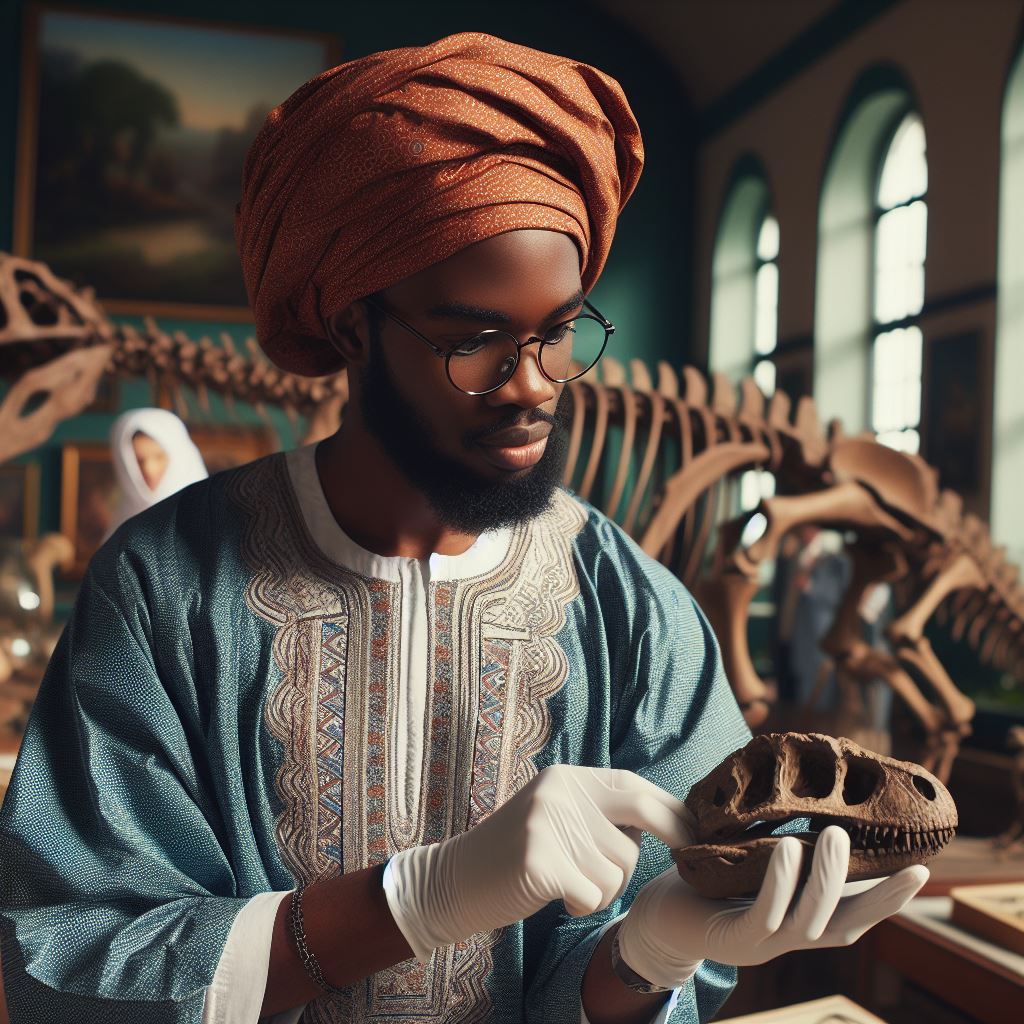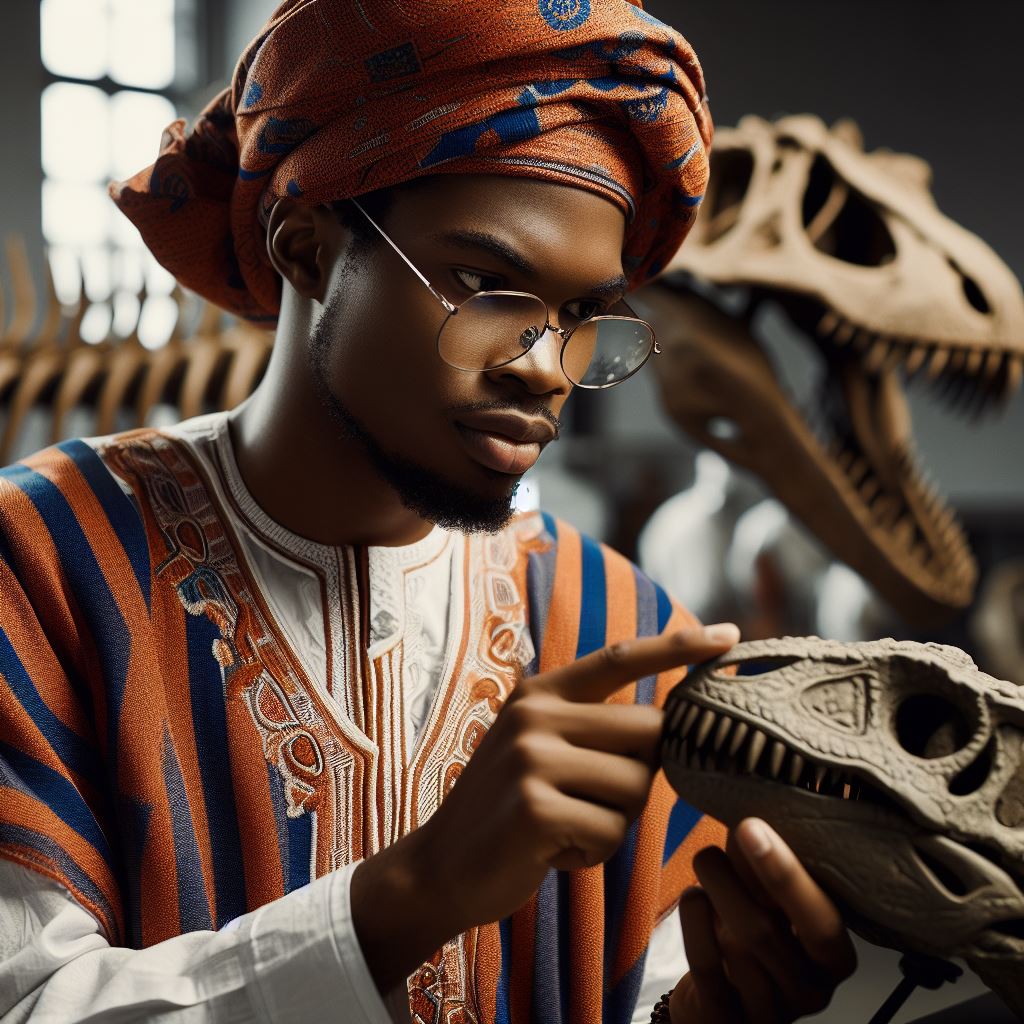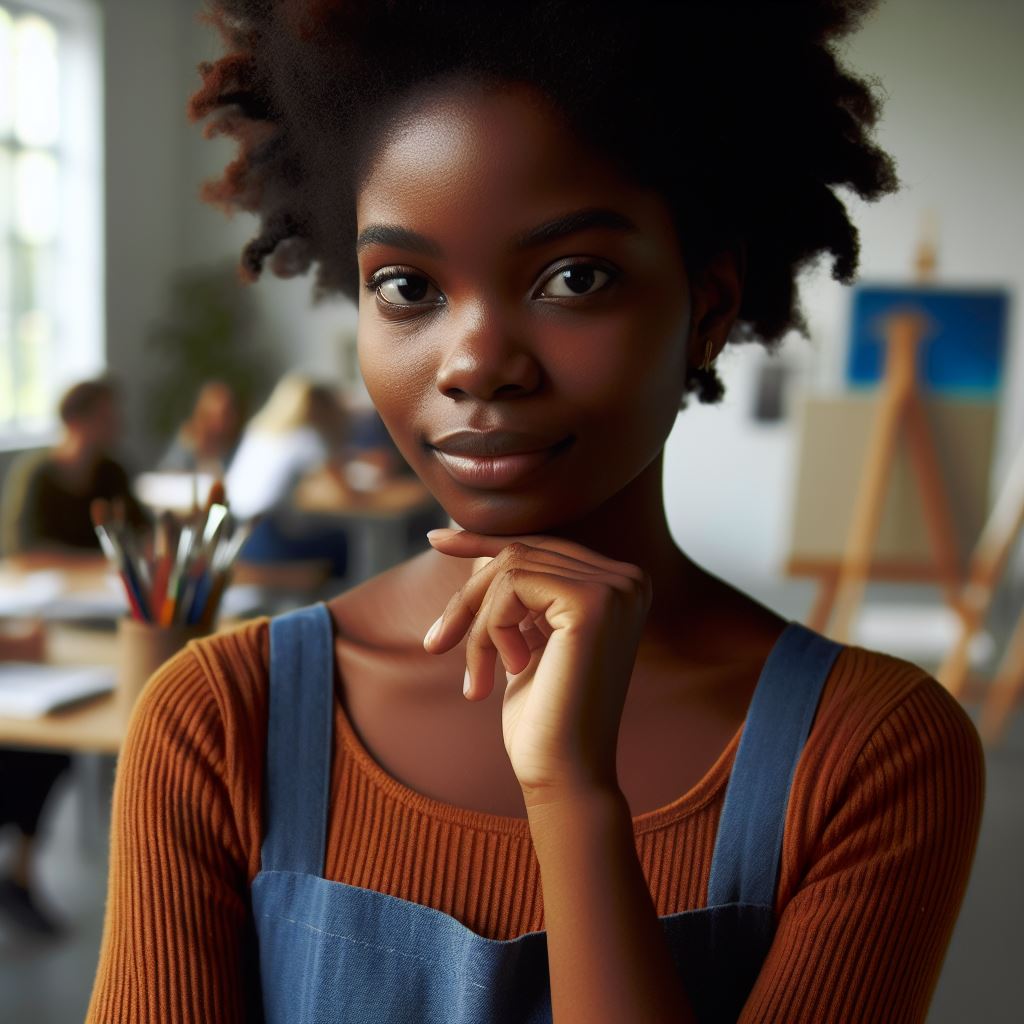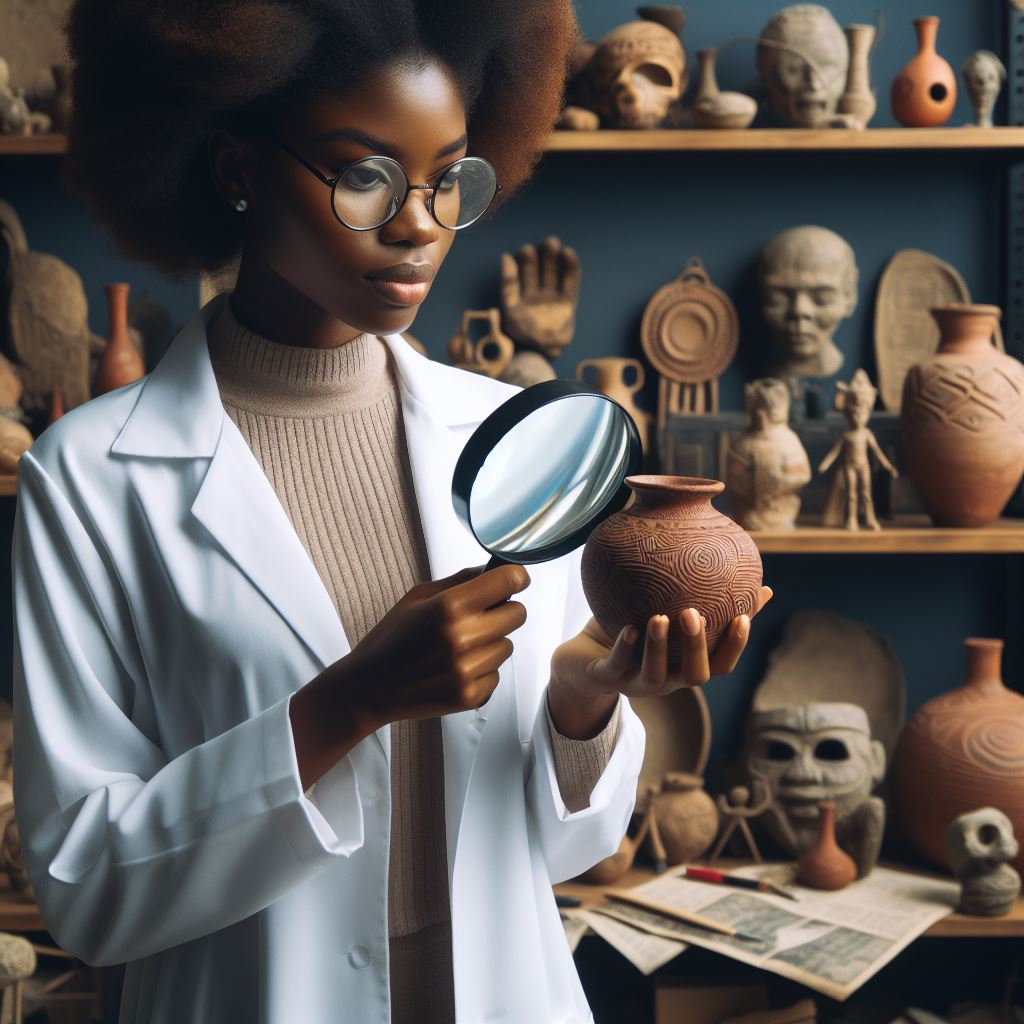Introduction
Nigerian arts play a vital role in preserving the country’s rich culture for future generations.
These arts capture the essence of Nigeria’s diverse traditions and heritage. By engaging with these arts, Nigerians connect deeply with their history.
Visual arts in Nigeria, such as painting and sculpture, reflect the country’s vibrant culture. Artists use bold colors and intricate designs to tell stories of the past.
Traditional crafts, like pottery and weaving, showcase the skill and creativity of Nigerian artisans.
Music in Nigeria is a powerful cultural expression. From the rhythmic beats of Afrobeat to the soulful melodies of highlife, Nigerian music resonates globally.
Musicians preserve traditional sounds while innovating new genres, ensuring the music evolves yet stays true to its roots.
Dance is another essential aspect of Nigerian culture. Traditional dances vary across ethnic groups, each with unique movements and meanings.
These dances celebrate significant life events and seasonal festivals, fostering community and continuity.
Nigerian literature also plays a crucial role in cultural preservation.
Renowned authors like Chinua Achebe and Wole Soyinka have captured the Nigerian experience in their works.
Through storytelling, literature keeps cultural narratives alive, educating and inspiring future generations.
Significance of passing down traditional arts to maintain cultural identity
Passing down traditional arts maintains Nigeria’s cultural identity. Elders teach younger generations the techniques and meanings behind various art forms.
This transmission ensures that cultural knowledge does not fade away but instead thrives and evolves.
Efforts to preserve Nigerian arts are essential for cultural sustainability. Cultural centers, museums, and schools play a pivotal role in this endeavor.
They provide platforms for showcasing and learning about Nigerian arts, fostering appreciation and participation.
In essence, Nigerian arts are integral to preserving the country’s rich culture.
Visual arts, music, dance, and literature all contribute to maintaining Nigeria’s cultural heritage.
By passing down traditional arts, Nigerians ensure that their cultural identity remains strong for future generations.
History of Nigerian Arts
Overview of the history of Nigerian arts, dating back to ancient civilizations like the Nok culture
Art in Nigeria has a rich and diverse history that traces its roots back to ancient civilizations such as the Nok culture.
The Nok culture, which dates back to around 500 BC to 200 AD, is known for its distinctive terracotta sculptures.
These sculptures were mainly of human figures and animals, showcasing the artistic skills of the people of that time.
The Nok culture set the stage for the development of art in Nigeria.
How art has evolved over the centuries, influenced by different ethnic groups and colonialism
Over the centuries, Nigerian art has evolved and been influenced by various factors, including different ethnic groups and colonialism.
The diverse cultural heritage of Nigeria has played a crucial role in shaping the art scene in the country.
Each ethnic group contributes its unique artistic traditions and techniques, resulting in a vibrant and eclectic art scene in Nigeria.
Colonialism also had a significant impact on Nigerian art. The arrival of European powers in Nigeria brought new artistic styles and techniques to the region.
Nigerian artists began incorporating elements of Western art into their work, creating a fusion of traditional Nigerian art and European influences.
This fusion of styles gave rise to a new wave of creativity in Nigerian art, blending the old with the new.
Role of art in storytelling, spirituality, and social customs in Nigerian society
Art in Nigeria is not just about aesthetics; it also serves as a means of storytelling, spirituality, and preserving social customs.
Nigerian art plays a crucial role in passing down stories and traditions from one generation to the next.
It serves as a visual language through which the history and customs of the Nigerian people are communicated.
Art is used to convey moral lessons, religious beliefs, and societal values, making it an essential part of Nigerian culture.
Moreover, art in Nigeria is deeply intertwined with spirituality.
Many Nigerian artworks have religious significance, serving as objects of worship or as symbols of spiritual beliefs.
Traditional masks, sculptures, and textiles are often used in religious ceremonies and rituals, connecting the people to their ancestors and spiritual traditions.
Art is a way for Nigerians to express their spiritual beliefs and connect with the divine forces that shape their lives.
In Nigerian society, art is also a reflection of social customs and practices. It is used to celebrate weddings, births, deaths, and other significant life events.
Artistic expressions such as dance, music, and visual arts play a central role in ceremonial practices and social gatherings.
Art serves as a unifying force that brings communities together and strengthens social bonds.
It is a way for Nigerians to express their cultural identity and celebrate their heritage.
Transform Your Career with Expert Guidance
Get personalized mentorship consulting that’s tailored to your unique path. Our expert advice is actionable and exclusive.
Get StartedIn fact, the history of Nigerian arts is a testament to the creativity, resilience, and cultural richness of the Nigerian people.
From the ancient Nok culture to the contemporary art scene, Nigerian art continues to evolve and flourish, reflecting the country’s diverse cultural heritage and artistic traditions.
By preserving and promoting Nigerian arts, we can ensure that future generations will continue to appreciate and celebrate this vital aspect of Nigerian culture.
Read: Anthropology Conferences and Events in Nigeria
Contemporary Nigerian Artists
With a rich cultural heritage, Nigeria has produced a plethora of talented artists who are not only preserving traditional art forms but also bringing them into the modern era.
These artists play a crucial role in ensuring that the legacy of Nigerian arts is passed down to future generations.
Showcase of Prominent Nigerian Artists
- Nnenna Okore – Known for her intricate sculptures made from discarded materials, Okore’s work explores themes of nature and the environment while drawing inspiration from traditional Nigerian techniques.
- Peju Alatise – As a multi-disciplinary artist, Alatise combines traditional Yoruba motifs with contemporary storytelling to create powerful artworks that address social issues and cultural identity.
- Victor Ehikhamenor – A versatile artist, Ehikhamenor’s work spans painting, sculpture, and installation art, often incorporating elements of traditional Benin art to comment on political and social issues.
Blending Traditional Techniques with Contemporary Styles
These artists are adept at blending traditional techniques with contemporary styles, creating artworks that resonate with both local and global audiences.
By marrying the old with the new, they are able to convey messages that are relevant in today’s world while staying true to their cultural roots.
Impact of Nigerian Artists on the International Art Scene
Nigerian artists have made a significant impact on the international art scene, garnering attention and recognition for their innovative approach to art-making.
Their unique perspective and ability to bridge the gap between tradition and modernity have earned them a place of prominence in the global art community.
Through their work, these artists are not only preserving Nigerian culture but also reshaping the narrative around African art.
By showcasing the richness and diversity of Nigerian arts, they are challenging stereotypes and contributing to a more inclusive representation of African creativity on the world stage.
Read: Impact of Nigerian Arts on African Cinema
Challenges Facing Nigerian Arts
Challenges that Nigerian artists face in preserving and promoting their cultural heritage
Nigerian artists face numerous challenges in preserving their cultural heritage. Financial constraints are a significant obstacle.
Many artists struggle to afford materials and workspace. Additionally, there is a lack of formal training opportunities for aspiring artists.
Many traditional art forms rely on apprenticeship systems. This system limits access to knowledge for many potential artists.
Furthermore, societal undervaluation of the arts discourages young talents. Many young Nigerians pursue more financially stable careers.
Additionally, cultural practices are often overshadowed by contemporary trends. This leads to the gradual loss of traditional skills and knowledge.
Lack of Government Support, Piracy, and Westernization
Lack of government support is a critical issue. Government funding for the arts is insufficient. Many artists lack access to grants and subsidies.
Consequently, they struggle to sustain their creative endeavors. Piracy poses another significant threat.
Illegal reproductions of artworks undermine artists’ earnings. This issue discourages innovation and original creation.
Westernization also affects traditional Nigerian art forms. Western cultural dominance influences younger generations.
They often prioritize foreign art over their heritage. This shift in cultural preferences endangers traditional practices.
It leads to the erosion of unique cultural expressions.
Globalization, Digital Technologies, and the Need for Adaptation
Globalization brings both opportunities and challenges. Nigerian artists can now reach a global audience.
However, this exposure requires adaptation to new markets. Digital technologies offer innovative platforms for showcasing art.
Social media and online galleries are vital for promotion. However, artists must adapt to these new mediums.
They need digital literacy to thrive in the online space. Despite these challenges, digital technologies provide new opportunities.
They enable artists to preserve and share their heritage globally. Adaptation is crucial for the survival of Nigerian arts.
Embracing change while preserving tradition is the way forward.
Read: Ethnography in Nigeria: Methods and Findings
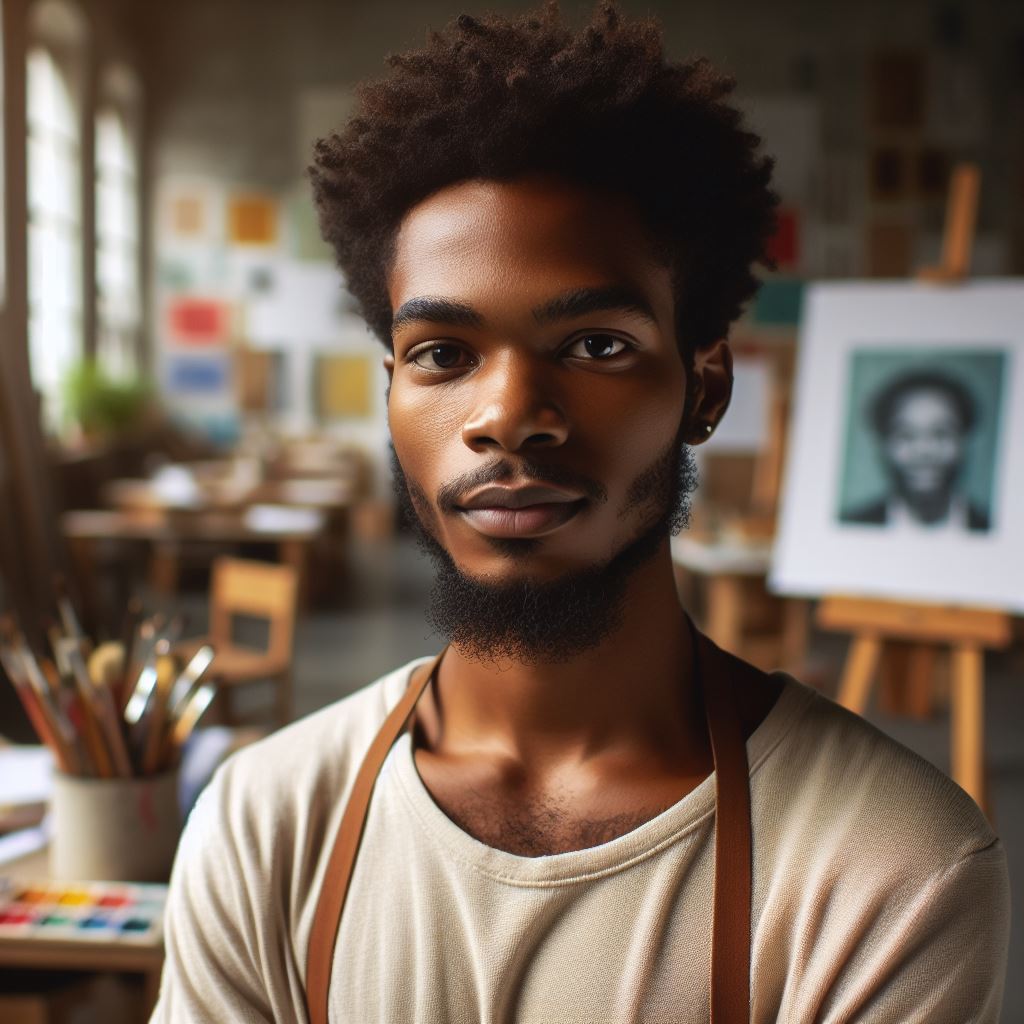
Explore Further: Top 10 Mass Communication Schools in Nigeria
Initiatives for Preserving Nigerian Arts
Initiatives and organizations in Nigeria that are dedicated to preserving and promoting the country’s cultural heritage
Nigeria is rich in cultural heritage, and there are several initiatives and organizations dedicated to preserving and promoting the country’s arts.
The National Commission for Museums and Monuments (NCMM) in Nigeria plays a crucial role in safeguarding the nation’s cultural heritage.
The NCMM oversees various museums and galleries across the country, where traditional Nigerian arts are showcased and preserved.
These institutions not only preserve artifacts but also educate visitors about the significance of Nigerian arts in the country’s history and identity.
Role of museums, galleries, cultural festivals, and educational programs in preserving Nigerian arts for future generations
The National Gallery of Art in Nigeria is another institution dedicated to promoting contemporary Nigerian visual arts and preserving traditional art forms.
Cultural festivals such as the Lagos Arts and Book Festival and the African Arts and Craft Expo provide platforms for artists to showcase their work.
These festivals not only celebrate Nigerian arts but also serve as a means to pass down traditional artistic practices to future generations.
Educational programs organized by institutions like the Nigerian Educational Research and Development Council (NERDC) play a vital role in preserving Nigerian arts.
These programs include the incorporation of art history and traditional arts in school curricula, ensuring that young Nigerians learn about their cultural heritage.
Grassroots movements and community efforts are also instrumental in safeguarding traditional Nigerian art forms from extinction.
Local cultural associations and community centers work tirelessly to preserve practices such as pottery, weaving, beadwork, and traditional dances.
In rural areas, elders pass down artistic skills and knowledge to younger generations, ensuring that traditional art forms are kept alive.
Success stories of grassroots movements and community efforts to safeguard traditional art forms
Success stories abound in Nigeria, with communities coming together to protect and promote their cultural heritage through the arts.
The Oje Arts Development Initiative in Lagos, for example, focuses on empowering local artists and preserving Yoruba art traditions through workshops and exhibitions.
The Osogbo School of Art, established in the 1960s, has played a significant role in promoting contemporary Nigerian art and preserving traditional artistic practices.
Collaborations between Nigerian artists and international organizations have also helped in raising awareness about Nigerian arts on a global scale.
Through exhibitions, artist residencies, and cultural exchanges, Nigerian artists have been able to share their rich cultural heritage with the world.
Read: Comparative Study: Nigerian vs. Global Anthropology
Gain More Insights: Student Experiences in Nigerian Political Studies
You Might Also Like: Postgraduate Mass Communication Programs Nigeria
Uncover the Details: Nigerian Journals for English Language Research
Impact of Nigerian Arts on Society
When we consider the significance of Nigerian arts in shaping national identity, fostering unity, and promoting cultural exchange, we see a rich tapestry of history and tradition that is vital to the fabric of society.
Shaping National Identity
- Nigerian arts serve as a visual representation of the country’s diverse cultural heritage.
- They showcase the unique traditions, customs, and beliefs of various ethnic groups within Nigeria.
- Artifacts such as pottery, sculptures, textiles, and masks symbolize the essence of what it means to be Nigerian.
Fostering Unity
- Art has the power to transcend boundaries and bring people together through shared cultural experiences.
- By celebrating Nigerian arts, individuals from different backgrounds can find common ground and develop a sense of belonging.
- Art events and exhibitions provide opportunities for dialogue and exchange, fostering a sense of unity among Nigerians.
Promoting Cultural Exchange
- Nigerian arts act as a bridge between the past and present, connecting generations and preserving history.
- Through art forms such as music, dance, and visual arts, Nigerian culture is shared with the world, promoting cross-cultural understanding.
- International collaborations with artists and institutions showcase the richness and diversity of Nigerian arts on a global stage.
Addressing Social Issues
- Art has the ability to spark conversations about important social issues such as gender equality, poverty, and environmental sustainability.
- Nigerian artists use their work to raise awareness, advocate for change, and give a voice to marginalized communities.
- Through artistic expression, complex societal problems are brought to light and discussed openly within Nigerian society.
Preserving History
- Nigerian arts serve as a record of the past, documenting traditions, myths, and historical events for future generations.
- Artifacts and artworks provide invaluable insights into the cultural practices and beliefs of earlier societies in Nigeria.
- By preserving history through art, Nigerian society ensures that its heritage is not lost or forgotten over time.
Bridging Generational Gaps
- Art serves as a medium for intergenerational communication, allowing younger and older generations to connect through shared experiences.
- Traditional art forms passed down through generations provide a link to the past, fostering a sense of continuity and belonging.
- By engaging with Nigerian arts, younger generations gain a deeper appreciation for their heritage and the legacy of those who came before them.
Economic Benefits
- Promoting Nigerian arts has tangible economic benefits, such as boosting tourism and creating job opportunities within the creative industry.
- Art galleries, museums, and cultural festivals attract visitors from around the world, generating revenue for local businesses and communities.
- International collaborations and art exports contribute to Nigeria’s economy, showcasing the value of its artistic heritage on a global scale.
In a nutshell, Nigerian arts play a crucial role in shaping societal values, preserving cultural heritage, and promoting economic growth.
By recognizing the impact of art on identity, unity, and exchange, we can appreciate the profound influence it has on Nigerian society and its future.
Gain More Insights: Exploring Nigerian Arts through Literature
Discover More: The Future of Economics Education in Nigeria
Conclusion
Preserving Nigerian arts is crucial for passing down our cultural heritage to future generations.
By safeguarding our traditions through art, we ensure that our unique identity is not lost over time.
Continued support and investment in Nigerian arts are essential for sustaining the vibrancy of our cultural expression.
We must actively engage with Nigerian arts, support local artists, and participate in initiatives that promote cultural preservation.
Through these efforts, we can ensure that the rich tapestry of Nigerian arts remains alive and thriving for years to come.
Preserving Nigerian Arts for Future Generations
Preserving Nigerian arts is essential for maintaining cultural heritage. Key points discussed include:
- Cultural Identity: Nigerian arts reflect the country’s diverse traditions and history.
- Education: Arts teach future generations about their roots and cultural practices.
- Economic Impact: Investing in arts boosts local economies and creates jobs.
- Global Recognition: Nigerian arts promote international appreciation and respect.
Importance of Support and Investment
Continued support and investment in Nigerian arts ensure cultural longevity:
- Funding: Allocate government and private funds to art projects.
- Infrastructure: Develop and maintain museums, galleries, and cultural centers.
- Education Programs: Integrate arts into school curriculums and community workshops.
Encouraging Engagement
Readers can help preserve Nigerian arts by:
- Supporting Local Artists: Purchase artwork and attend exhibitions.
- Participating in Cultural Initiatives: Join events and campaigns promoting cultural heritage.
- Raising Awareness: Use social media to highlight Nigerian arts and artists.
Engage with Nigerian arts today to safeguard cultural heritage for tomorrow.

